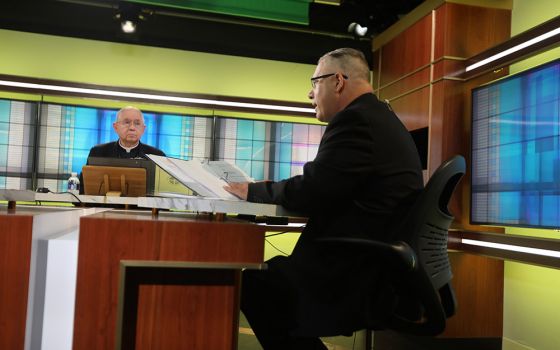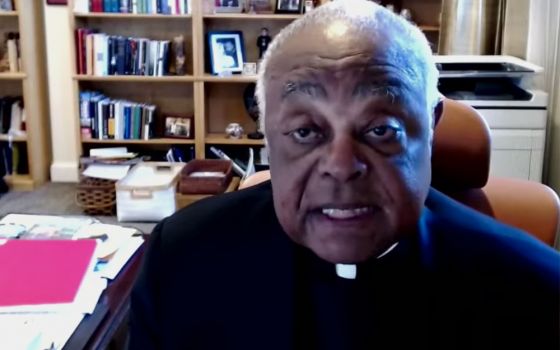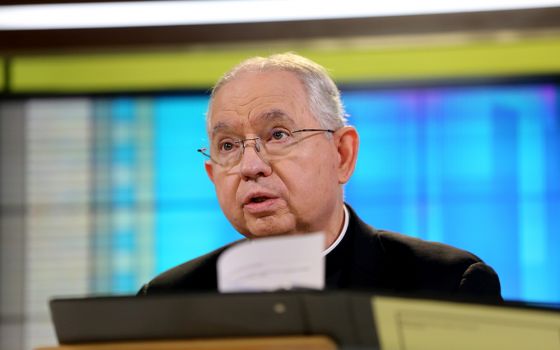Archbishop Jose Gomez of Los Angeles, president of the U.S. Conference of Catholic Bishops, responds to a question during a news conference at the fall general assembly of the USCCB in Baltimore Nov. 12, 2019. (CNS/Bob Roller)
When the bishops gather virtually for their June 2021 meeting, all the attention will be focused on whether pro-choice Catholic politicians will be banned from Communion.
The answer — spoiler alert! — is no.
At the June 16-18 meeting, the U.S. Conference of Catholic Bishops will only vote on whether to permit its Committee on Doctrine to draft a document "to help Catholics understand the beauty and mystery of the Eucharist as the center of their Christian lives," in the words of the bishops' conference president, Los Angeles Archbishop Jose Gomez.
Any such document will likely not be produced until at least the bishops' fall meeting and isn't likely to produce a ban, which is the business of individual bishops, not the bishops' conference, as the Vatican has made clear.
But what is most telling is what is not on the agenda: nothing about global warming, racism or the economy, the topics most central to the future of America and the world. What about voting legislation that is threatening our democracy?
True, there are other items on the agenda besides the Communion draft. The bishops will consider a proposal to develop a pastoral framework for young people, but again, the vote will not be on a document but on whether to draft a document.
But a framework on young people will do little good if young people themselves don't take bishops seriously. They won't take the bishops seriously if the bishops' conference does not prioritize the issues about which they are most concerned.
A more developed pastoral framework under consideration is on marriage and family life ministry in the spirit of Amoris Laetitia, Pope Francis' 2016 exhortation on love in the family.
Granted the centrality of family in Catholic life, the bishops' document could be important as a framework for implementing Amoris Laetitia in the United States. On the other hand, the draft will probably avoid controversial topics like gay marriage and Communion for divorced and remarried Catholics.
But will the bishops say anything at their meeting about immigration and gun violence, which affect so many families in this country, including many Catholics?
The bishops will also be voting on a few liturgical translations up for approval, votes liturgical geeks will be watching to see whether the translations follow the new rules set down by Francis or whether they continue the word-for-word approach favored by Benedict.
But what about issues of concern to Catholics around the world? What about religious freedom in China, India and elsewhere? What about our obligation to make COVID-19 vaccines available to poorer countries? What about refugees? Afghanistan?
Some of these topics the bishops have spoken on in the past, but their urgency demands more. It's sad that the U.S. bishops are so focused on the Communion war that they have no energy for anything else.
The silence on these topics is deafening.
Advertisement







